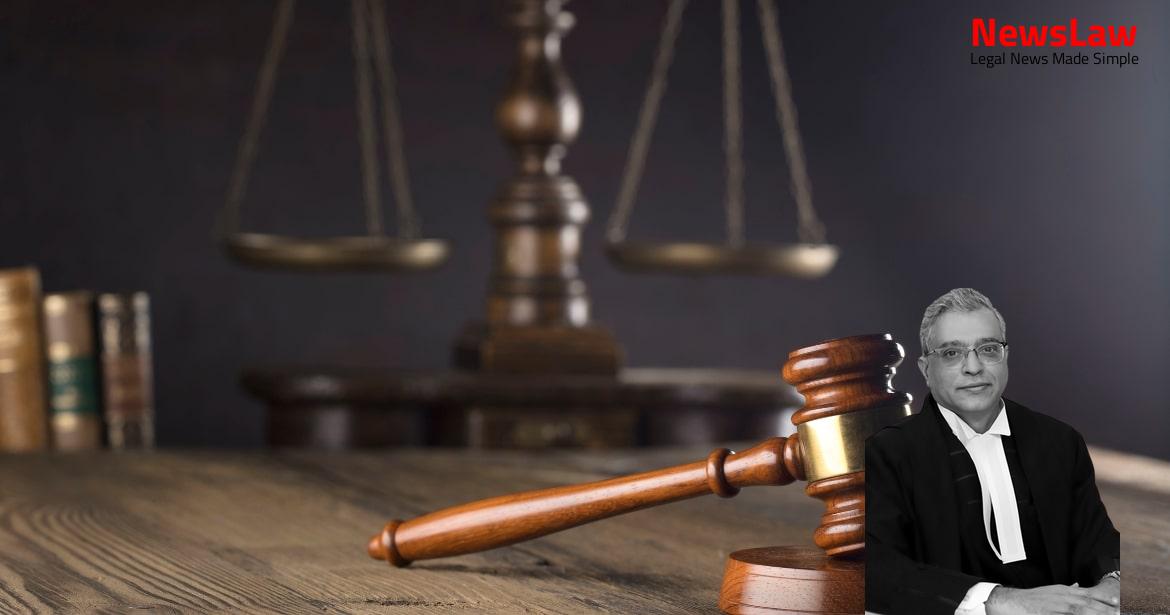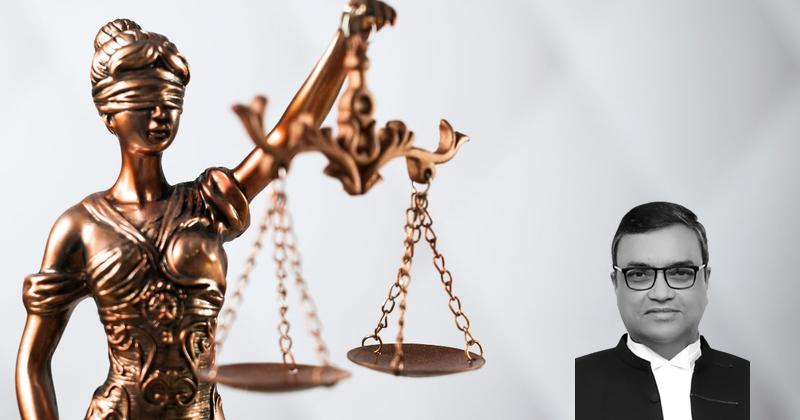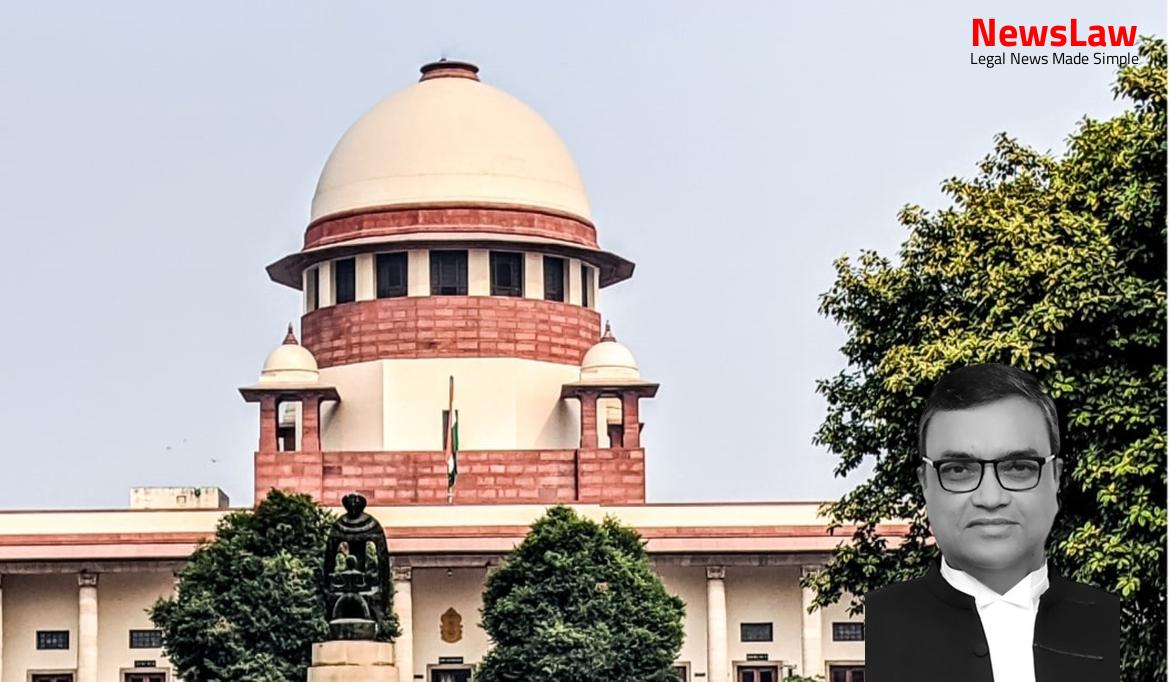By the said judgment, the Division Bench had dismissed the Appeal of the Bank and confirmed the judgment and order of the learned Single Judge dated 12.11.2003. Learned Senior Counsel further contends that the courts below have rightly set aside the order of the Disciplinary Authorities and that the case did not call for any interference. Broadly stated, the charges in the Charge Sheet dated 13.02.1992 were: i) That he recommended and obtained sanction from the Branch Manager, credit limits to various units as detailed therein and permitted excess drawings on an on-going basis; that he did not report to the controlling office the excess drawings permitted; that he did not conduct periodical inspections as per the extant instructions; that loan sanctions were given and credit limit extended to entities operating in the premises of another entity; ii) That credit limit was recommended and sanction obtained for M/s Saraswathi Fabricators even though the unit was located away from the area of operation; sanction of the advance was not reported to the Controlling Office; and formalities for creating equitable mortgage over immovable property offered as collateral security were not completed; iii) That the respondent recommended and obtained sanction of advance to M/s ACE Photo Reprographers and M/s Sangeetha Refreshments both from Shivajinagar, even though the units were non-existent and the particulars furnished were fictitious as another firm M/s All Arts Company was operating from the same premises; that the sanction of these advances were not reported to the controlling office and periodical inspection of the units were not conducted. b)
As part of the charge, it was further alleged that he purchased agricultural land in October 1987 ad-measuring 21.36 acres and got it registered in his name for a nominal amount, using the influence of one Shri Ramamurthy of M/s Bindu Enterprises who are enjoying credit facilities with the branch and he failed to declare to the Bank the purchase of immovable property as per the extant instructions.
The Enquiry Officer, after completion of the enquiry proceedings, analyzed all the oral and documentary evidence and found the respondent guilty for some of the charges levelled and absolved the respondent with regard to a few other charges. Thereafter, the Disciplinary Authority also issued a notice dated 04.10.1993 setting out the points of disagreement with regard to the Enquiry Officer’s findings to which again the respondent furnished a reply. For example, in the case of a unit – ACE Foto Reprographers not functioning in the premises, while the enquiry officer held the charge not proved, the Disciplinary Authority held the charge to be proved.
Challenging the order of the Disciplinary Authorities and the Appellate Authority, the petitioner moved a writ petition, which has now resulted in the orders of the learned Single Judge and that of the Division Bench. On the aspect of non-submission of the control forms, the learned Single Judge records that the burden was wrongly shifted on the respondent when the Enquiry Officer held that the delinquent had not proved the submission of the control forms. In the preliminary paragraphs under the head “Area of operation”, while dealing with the relative instructions of the Bank, the following is set out: “ii) Where there are clusters of eligible units, whether SSI or Small business, situated outside the respective operational area, assistance could be rendered to them, provided the place is accessible throughout the year and is connected by the public transport.
However, we find that the learned Single Judge and the Division Bench, which confirmed the order of the learned Single Judge, erred in recording the following finding with regard to the first limb, namely, about the respondent not conducting the periodical inspections as required under the extant instructions:- “In so far as the first component of the charge is concerned, i t can safely be said that none of the witnesses examined by the Bank before the enquiry officer have spoken about the truth or otherwise of the allegations made in the charge memo. In fact, PW 4 in his lengthy deposition before the enquiry officer has stated that the periodical inspections of units were carried out by the petitioner sometimes independently and some time with the Branch Manager and the relevant records were not available at the Branch. 4 and importing his personal knowledge about the so called instructions and guidelines issued by the Bank, in my view, the enquiry officer could not have come to the conclusion that the Petitioner failed to conduct periodical inspection and therefore that part of the charge in the charge memo is proved against him.” 19.
Dealing with the charge, the Enquiry Officer records the following:- “From the above instructions it may be observed that it is the duty of Field Officer to conduct periodical inspection and maintain proper records of those inspections. The objective underlying the form is to relate outstanding to the activity level on a continuing basis i.e. every month, and to relate the activity level to earlier projections (as indicated in the scheme or estimates based on past performance). Sri Krishnamurthy Urala – PW4 deposed on page 10,11 of the proceedings that the charged official has not conducted any periodical inspection. A number of units were mentioned in the charge memo to substantiate the allegation that periodical inspections, as per the extant instructions, were not conducted on them.
DR: A submission to EO: We have been told by the branch that the inspection records related to 88,87 & back are not available. DR: Inspection cards in r/o units mentioned in the charge sheet. EO:
PO may examine the request of DR and if possible records, if available may be given. To support the charge, witnesses were examined and on the request through his defence representative, the Enquiry Officer has directed the presenting officer to produce the inspection records. We are not impressed with the submission since, it was after the production of the inspection register that the defence representative of the respondent had stated, that they will respond after going through the said documents.
One of the charges dealt with by the Enquiry Officer was about not securing the advance to M/s Saraswathi Fabricators by creation of an equitable mortgage even though the equitable mortgage of immovable property was offered by the party. In the deposition of PW-4, recorded in the enquiry proceeding on 17.02.1993, the following is found:- “PO: Looking to PEX page 12 item 7.2 of PEX 9 please tell us the collateral security offered by the unit.
belonging to Sri KV Srinivasan at Vivek Nagar, Bangalore valued at Rs.4.5 lacs. PW4: No.”
Deposition of PW-4 recorded on 03.03.1993:- “DR: Who puts the stipulations in sanctioning of a loan? DR:
The application contains the offers of the applicant and the appraisal contains the conditions of sanction by the sanctioning authority. PW4: The application cum interview form is containing information regarding the prospective borrower. DR: On pg.12 para 7.2 there is a mention of equitable mortgage of certain properties.
DR: On pg.18 para 9.2 under the stipulation the column stipulation is vacant. It appears from the records that no stipulation was put with regard to equitable mortgage so mentioned with regard to M/s Saraswathi Fabricators, even though the party had offered equitable collateral security in the form of immovable property. The answer given by the respondent in the writ petition that personal guarantee was available; that the sanction did not contain any condition regarding equitable mortgage of the property; that documents of title were traced only in September, 1988 after he left the Branch in June, 1988; that as required by the successor of the respondent and the then Branch Manager, the respondent had identified the documents and suggested that they complete the work connected with the creation of equitable mortgage, are not matters on which the view of the Disciplinary Authority can be substituted.
Even if we eschew the report insofar as the aspect of non-submission of control form, the transgression of the area of operation and non-declaration of the immovable property and certain other charges are concerned, the order of penalty can be sustained. Bhat, learned Senior Counsel, relying upon the judgments of this Court in Nand Kishore Prasad vs State of Bihar and Others, (1978) 3 SCC 366 and Anil Kumar vs. Sree Rama Rao, AIR 1963 SC 1723, was reiterated, which reads as follows:- “This Court has held in State of A.P. This position of law has been reiterated in several decisions by this Court which we need not refer to, and yet by the impugned judgment the High Court has re- appreciated the evidence and arrived at the conclusion that the findings recorded by the enquiry officer are not substantiated by any material on record and the allegations leveled against the respondent no.1 do not constitute any misconduct and that the respondent no.1 was not guilty of any misconduct.” 36.
If the records reveal that the findings are based on some evidence, it is not the function of the court in a judicial review to re-appreciate the same and arrive at an independent finding on the evidence. The law is well-settled that if in a disciplinary proceeding, the order of penalty can be imposed on the charges proved and the punishment imposed is lawfully sustainable on those charges, it is not for the Court to consider whether those grounds alone would have weighed with the authority in imposing the punishment.
This submission was countered by the appellant by placing reliance on the judgment of this Court in Disciplinary Authority-cum- Regional Manager and Others vs Nikunja Bihari Patnaik, (1996) 9 SCC 69, particularly, the holding of the Court in para seven thereof to contend that the test is really not of loss having been resulted or profit having been made. For the reasons stated above, we have no hesitation in holding that both the learned Single Judge and the Division Bench were in error in allowing the writ petition and interfering with the findings of the Enquiry Officer, the decision of the Disciplinary Authority, the order of the Appointing Authority and the decision of the Appellate Authority. Maheshwari)…………………….. J.
Case Title: STATE BANK OF INDIA Vs. A.G.D. REDDY
Case Number: C.A. No.-011196-011196 / 2011



